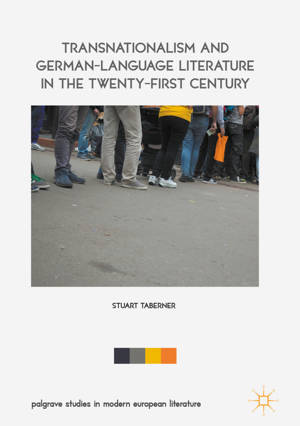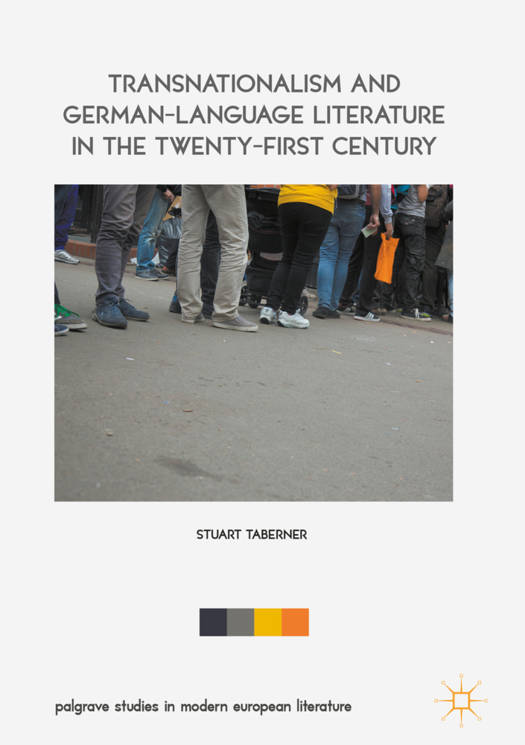
- Afhalen na 1 uur in een winkel met voorraad
- Gratis thuislevering in België vanaf € 30
- Ruim aanbod met 7 miljoen producten
- Afhalen na 1 uur in een winkel met voorraad
- Gratis thuislevering in België vanaf € 30
- Ruim aanbod met 7 miljoen producten
Zoeken
Transnationalism and German-Language Literature in the Twenty-First Century
Stuart Taberner
€ 105,45
+ 210 punten
Uitvoering
Omschrijving
This book examines how German-language authors have intervened in contemporary debates on the obligation to extend hospitality to asylum seekers, refugees, and migrants; the terrorist threat post-9/11; globalisation and neo-liberalism; the opportunities and anxieties of intensified mobility across borders; and whether transnationalism necessarily implies the end of the nation state and the dawn of a new cosmopolitanism. The book proceeds through a series of close readings of key texts of the last twenty years, with an emphasis on the most recent works. Authors include Terézia Mora, Richard Wagner, Olga Grjasnowa, Marlene Streeruwitz, Vladimir Vertlib, Navid Kermani, Felicitas Hoppe, Daniel Kehlmann, Ilija Trojanow, Christian Kracht, and Christa Wolf, representing the diversity of contemporary German-language writing. Through a careful process of juxtaposition and differentiation, the individual chapters demonstrate that writers of both minority and nonminority backgrounds addresstransnationalism in ways that certainly vary but which also often overlap in surprising ways.
Specificaties
Betrokkenen
- Auteur(s):
- Uitgeverij:
Inhoud
- Aantal bladzijden:
- 361
- Taal:
- Engels
- Reeks:
Eigenschappen
- Productcode (EAN):
- 9783319504834
- Verschijningsdatum:
- 8/03/2017
- Uitvoering:
- Hardcover
- Formaat:
- Genaaid
- Afmetingen:
- 148 mm x 210 mm
- Gewicht:
- 594 g

Alleen bij Standaard Boekhandel
+ 210 punten op je klantenkaart van Standaard Boekhandel
Beoordelingen
We publiceren alleen reviews die voldoen aan de voorwaarden voor reviews. Bekijk onze voorwaarden voor reviews.











